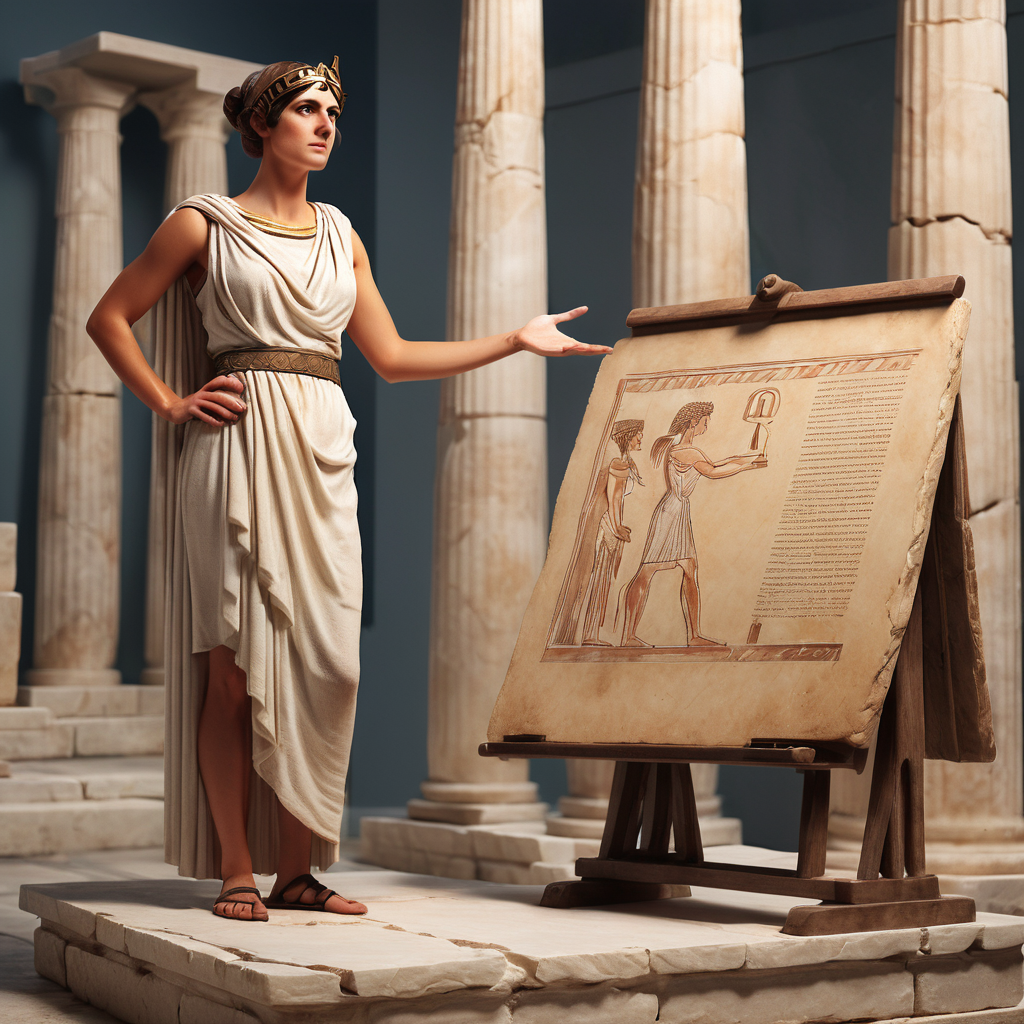Mastering Persuasive Presentations: Ancient Rhetoric for Modern Success

Transform your team’s presentation skills with our “Mastering Persuasive Presentations: Ancient Rhetoric for Modern Success” seminar. This two-day program teaches participants how to create compelling presentations using the principles of ethos, logos, and pathos, and the rhetorical techniques developed in antiquity. Through interactive workshops, participants will learn to establish credibility, craft logical arguments, and connect emotionally with their audience. By integrating these timeless principles, this seminar ensures your employees can deliver persuasive and impactful presentations, enhancing their ability to influence and inspire others.
Key Elements:
Ancient Rhetorical Principles: Emphasis on ethos, logos, and pathos to create persuasive presentations.
Interactive Workshops: Engage participants with practical exercises, role-playing, and real-world scenarios.
Healthy Lifestyle Integration: Incorporate physical well-being with nutritious meals and mindfulness practices.
Actionable Outcomes: Ensure participants leave with clear plans and techniques to enhance their presentation skills using ancient and modern principles.
This seminar structure is designed to provide participants with advanced presentation skills, emphasizing the powerful principles of ancient rhetoric for modern success.
Day 1: Foundations of Persuasive Presentations
-Introduction to Persuasive Presentations
Welcome and opening remarks.
Overview of the seminar goals and the importance of ethos, logos, and pathos in presentations.
Brief discussion on how ancient rhetorical techniques can enhance modern presentations.
-Understanding Ethos: Establishing Credibility
Presentation: The concept of ethos and its role in persuasive communication.
Workshop: Techniques for building credibility and authority.
Exercise: Participants analyze examples of strong ethos and practice crafting their own introductions to establish credibility.
-Mastering Logos: Crafting Logical Arguments
Presentation: The concept of logos and the importance of logical structure in presentations.
Workshop: Techniques for developing clear, logical arguments.
Exercise: Participants create logical outlines for their presentations and receive feedback.
-Engaging Pathos: Connecting Emotionally
Presentation: The concept of pathos and the power of emotional appeal.
Workshop: Techniques for incorporating stories, anecdotes, and emotional triggers.
Exercise: Participants practice telling personal stories or anecdotes to evoke emotions in their audience.
-Rhetorical Techniques from Antiquity
Presentation: Overview of rhetorical techniques such as metaphors, analogies, and rhetorical questions.
Workshop: Practicing these techniques in small groups.
Exercise: Participants apply rhetorical techniques to their presentation content.
-Combining Ethos, Logos, and Pathos
Workshop: Strategies for integrating ethos, logos, and pathos seamlessly.
Exercise: Participants work in pairs to refine their presentations, focusing on balancing all three elements.
Discussion: Group feedback and sharing insights.
Day 2: Advanced Techniques and Practical Application
-Visual Aids and Storytelling
Workshop: Using visual aids effectively to support your message.
Exercise: Participants design slides or visual aids that complement their presentations.
Discussion: The role of storytelling in enhancing presentations and keeping the audience engaged.
-Handling Questions and Objections
Workshop: Techniques for handling audience questions and objections gracefully.
Exercise: Role-playing scenarios where participants practice responding to challenging questions.
-Practicing Delivery Skills
Workshop: Tips for effective delivery, including voice modulation, body language, and pacing.
Exercise: Participants practice delivering segments of their presentations and receive feedback.
-Full Presentation Practice
Exercise: Participants deliver their full presentations to small groups.
Activity: Peer feedback session to refine delivery and content based on the principles of ethos, logos, and pathos.
-Personal Action Plans and Commitments
Workshop: Developing a personal improvement plan for future presentations.
Exercise: Participants create and share their action plans, focusing on integrating rhetorical techniques.
-Closing Remarks and Q&A
Summarizing key takeaways and encouraging ongoing practice of rhetorical techniques.
Open floor for final questions and feedback.
